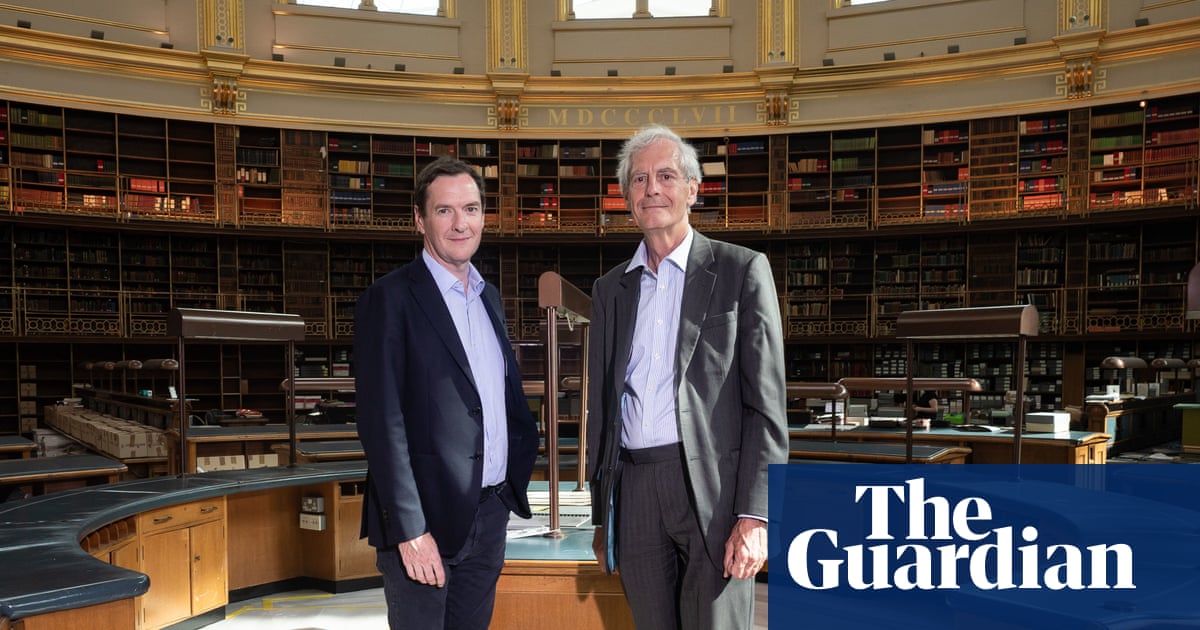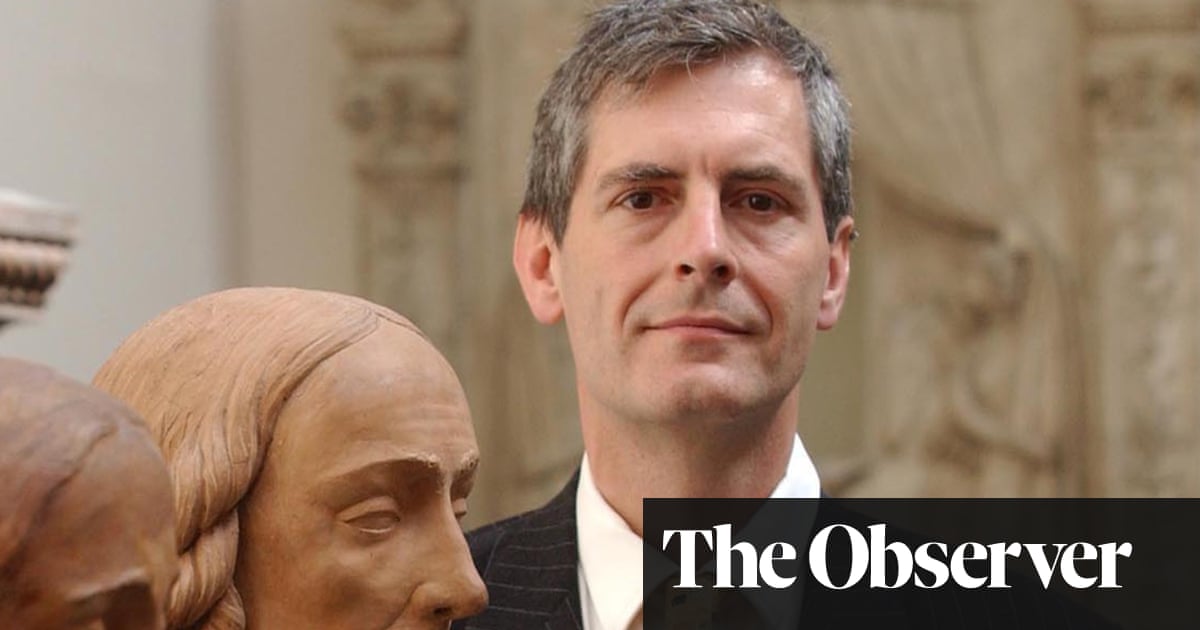
The head of the British Museum has resigned and his deputy has stepped back over its handling of the suspected widespread theft of artefacts following a string of blunders that have prompted international embarrassment and questions about systemic failures.
Hartwig Fischer said on Friday he accepted responsibility for the museum’s failure to properly respond to warnings about the suspected thefts of thousands of objects in 2021.
It emerged last week that items from the museum’s collection were found to be “missing, stolen or damaged”, prompting a police investigation.
In his resignation statement, Fischer said: “It is evident that the British Museum did not respond as comprehensively as it should have in response to the warnings in 2021, and to the problem that has now fully emerged.”
He added: “The responsibility for that failure must ultimately rest with the director.”
The museum’s board of trustees accepted Fischer’s resignation, with the former chancellor George Osborne – chair of the trustees – saying the director had “acted honourably” and that “no one has ever doubted Hartwig’s integrity, his dedication to his job, or his love for the museum”.
The museum said Fischer would step down “with immediate effect”, but later clarified he would step down once an interim leadership arrangement was in place.
Later on Friday it was announced that the museum’s deputy director, Jonathan Williams, had agreed to voluntarily step back from his normal duties until the independent review into the suspected thefts had concluded.
On Wednesday, Fischer had defended the museum’s handling of a tip-off from Ittai Gradel, an author, academic and antiques dealer who raised the alarm about stolen artefacts.
Fischer had said: “Concerns were only raised about a small number of items, and our investigation concluded that those items were all accounted for.” Although he admitted a full audit in 2022 had “revealed a bigger problem”.
Gradel said claims that he had withheld information from the institution was an “outright lie”.
“I was explicit in my communication with the BM [British Museum] that I was entirely at their disposal for any further information or assistance they would require. They never contacted me,” he said.
In his resignation statement, Fischer said he regretted his earlier remarks about Gradel, that they had been misjudged and he withdrew them.
Gradel accused the museum of treating him like a “village idiot” and welcomed Fischer’s resignation, but called for Williams to follow suit.
“[Fischer has] done the right thing and the honourable thing,” Gradel said. “He deserves credit, at least for that, and I accept his apology without reservation. As far as I’m concerned, his unfortunate remarks about me are forgotten.”
He said Williams, however, was “far more culpable in this monumental cock-up than Hartwig Fischer ever was. Fischer’s failure was that he failed to engage with it.
“He stayed aloof, he left everything to the deputy director, [who] is directly responsible for this monumental mess, and this extremely flawed, so-called investigation that they did, which was at the very least incompetent on an unbelievable scale.”
Prof Dan Hicks, the curator of world archaeology at Oxford University’s Pitt Rivers Museum, said: “The director’s immediate departure was inevitable, but questions remain for the whole of the museum’s senior leadership team and trustees.”
Gradel estimated that up to 2,000 items could have been stolen, including nearly an entire collection of unregistered gems, amid concern about the absence of proper record keeping.
“They have been lying there without any registration at all for over 200 years,” he told the Guardian. “If they can’t be identified how can they return them to the museum.”
Emails revealed that Gradel alerted the British Museum to potential wrongdoing two years ago after he purchased about 70 items on eBay.
The suspected thefts were first announced last week by Osborne, following the dismissal of a member of staff. Osborne said items including gold jewellery and gems of semiprecious stones and glass dating from the 15th century BC were found to be missing, stolen or damaged.
Scotland Yard said officers had interviewed a man about the suspected theft.
The incident has reignited the dispute about the future of the Parthenon marbles, at a time when the UK government is in negotiations with Greece about a potential loan. One of the arguments frequently deployed by supporters of the marbles remaining in Britain is that the British Museum is a secure global custodian of the treasures.
A senior Greek archaeologist said the British Museum could no longer claim the marbles were safe in its hands.
Despina Koutsoumba, the director of the Association of Greek Archaeologists, said: “They have to return the Parthenon marbles because they’re not safe.”
Tim Loughton, the chair of the all-party parliamentary group on the British Museum, accused Greece of “blatant opportunism”.
After Fischer’s departure, Loughton said: “This news in the last couple of weeks has obviously been very damaging and it’s been embarrassing.”
Speaking to Times Radio, he said the police had asked the museum not to give more information about the investigation. “So Hartwig hasn’t really been able to give his side of the story.”
Unlike other museums, the British Museum is a non-departmental public body, operating at arm’s length from government and accountable to parliament.
Fischer, a German art historian, had announced last month that he planned to step down after an eight-year stint at the museum.
On Friday he said: “Sadly I have come to the conclusion that my presence is proving a distraction. That is the last thing I would want. The British Museum is an amazing institution, and it has been the honour of my life to lead it.”












